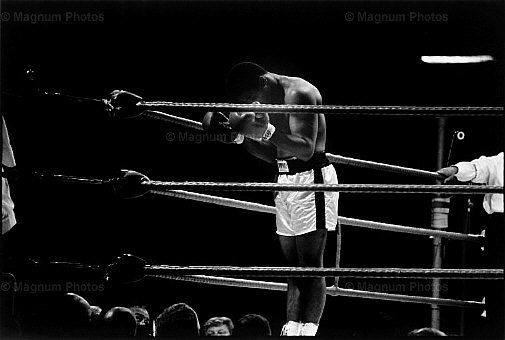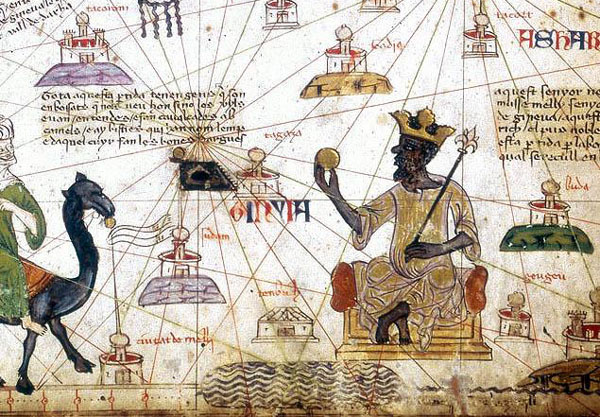A couple of weeks ago, I attended a Tariq Ramadan lecture on the ‘Deconolisation of the Mind’. I found the lecture to be incredibly inspiring – Ramadan is most definitely groundbreaking in his intellectual thought. There were several points in his discourse that resonated with me.
The first is the importance of opening our hearts and minds out to dialogue. In order to help ourselves and help each other we are in need of intra-faith dialogue (for example between Sunni’s/Shia’s and even within those strands) and not just inter-faith dialogue. Terminology is a key aspect too, instead of referring to groups as ‘Non-Muslims’, why not refer to them as ‘people of other faiths?’. It is a far more positive label. Ramadan also stresses the importance of remembering that the starting point of dialogue is not to speak but to listen.
In regards to the colonization of the mind, there are different dimensions. The basic definition refers to when we are not able to think on our own, so we think through other people and other powers. An example of this is when Muslims start to refer to themselves as ‘moderate Muslims’ which is a concept that was introduced after the focus on extremist groups in recent years. We have never heard terms referring to ‘moderate Christians’ or ‘moderate Jews’ even though it is very apparent that extremism has existed within all groups and cultures (although it is nearly always a minority) so why the target on Muslims? In my previous blog post ‘The importance of the Middle Path’ – the concept of moderation and following the balanced middle way is a trait that is already enshrined into Muslim scripture and identity, so implying that I am a ‘moderate Muslim’ implies that moderateness exists in such a proportion when that is not the case. To believe in such a label is where colonization takes place.
When our minds are under control, we become alienated. We do not truly think for ourselves but think of ourselves through the eyes of others. Ultimately, we start to become alienated when we do not have knowledge of ourselves.
As Muslims in the modern world, it is very easy to respond to questions from people who want to make us think in a specific way. The one who has the power is the one who is asking the questions and shaping our minds in the way we are reacting. “We want you to become moderate” so we build our minds in a way to make us think that we want to be moderate.
“The objectivity of power is the one who is dominant, and they are setting the framework” says Ramadan.
Alienation.
How do Muslims deal with alienation? Ramadan states that the first dimension is terminology. It’s important to find the concepts that we are talking about. The meaning of the words in the Qur’an have a lot to do with context. Muslims fall victim of having a superficial understanding of the Qur’an if they do not grasp that the meaning of the Qur’anic verses are related to history and context, and the Qur’an is not a book you read without having historical understanding. The verses were revealed within a span of 23 years, therefore it is an eternal book within a specific history and to understand this is the starting point.
If we don’t understand the theory of knowledge within Islam then the dominant can play with the words and knowledge. If we do not understand the concept of knowledge then it would make an easier pathway for civilisations to colonize our minds. Ramadan states that the solution to this problem is through the concept of liberation. This is where we need to understand that we have to free ourselves from any intellectual, cultural, political, economical powers that are alienating us in the sense that we do not think by ourselves, that we do not decide and we are not free to decide.
Where do we get liberation from? Ramadan emphasizes the importance of spirituality. Spirituality is the root of religion, and we get true liberation here. It will help us understand the right terms, the right way to use culture, politics etc and is the starting point of the process of liberation.
Spiritual liberation essentially means to think of your death. To forget death means to forget Allah. Unfortunately, the consumerist society that we live in today is obsessed with the avoidance of death. How often do we see age defying products? Even in matters of war, it appears to be completely fine to kill hundreds of Palestinians as part of ‘collateral damage’ because other lives are far more valuable and to save them is the highest thing that needs to be protected. To pray is to remember that we are going to die, and that is the first true liberation. People are buying to forget, and praying to remember.
Tariq Ramadan goes on to explain other aspects of liberation which are briefly explained here:
Intellectual Liberation
Intellectual liberation is not to be scared of critical thinking, to be confident of our thinking and be ready for the dialogue. An example of this is through concepts which have been so radically altered today such as ‘Jihad’ – a term that is used today to describe ‘militant Muslims’. Jihad in the most basic term refers to the personal struggle in trying to better ourselves. Ramadan asks Muslims to use the Qur’an and respond but in a way that is understandable for people of other faiths.
Cultural liberation
Cultural liberation is to accept that I can be a good British person and also a good Muslim too and there’s nothing wrong with that. However, does that mean we would take everything from the dominant culture? The answer is no. Ramadan states that we should take from the culture what is right as we’re not here to accept that everything in the British culture is good. This can be applied to any culture around the world – Egyptian, Lebanese, Somalian, Indian, Bangladeshi – not everything from within those cultures is good, for example female genital mutilation is practised in western, eastern, and north-eastern Africa, it is an excruciatingly painful procedure and has been fatal in some cases. So we have to resist, and that is to liberate ourselves from the cultures. Ramadan firmly believes that every single culture should be reformed in moral principles because with time the cultures have integrated things that are wrong, and we can’t repeat the wrong, we repeat the good, so therefore, reform the wrong and go to the right path. That is what Islam is, commend what is right and resist that which is not.
Political liberation
Political liberation is not to say ‘Yes’ to everything. Ramadan states that a true American/British characteristic is to resist everything that is wrong. The president of the USA promised to end Guantanamo and Guantanamo is still here. We are citizens of principle. To speak of liberation is easy, but to practice is the struggle.
Economic liberation.
When we are dealing with the dominant culture, there is one concept that is important – the concept of power. In ethical and spiritual terms, we understand the meaning in a different way. If someone has power, then they must serve and help the people to change and be better.In Islam the concept of power is not to take over, the concept is to also serve – the leader is serving the people who are following him, for example, the Prophet Muhammad (phuh).
In consumerist society, freedom equates to doing what you want and following your nature – it is nature without disciple. in spiritual terms it’s the total opposite, there is no freedom without discipline. It is in our nature to be self-centered, to have desires, to be selfish, greedy. Consumerism often means to eat, drink, buy, forget and allow our natural desires to flourish. It implies nature is good and therefore, the concept of power is heavily influenced by these desires. A spiritual understanding would be to understand that power is to serve and there is no freedom without discipline of our natural state.
Master yourself in order to free yourself – Tariq Ramadan




No Comments